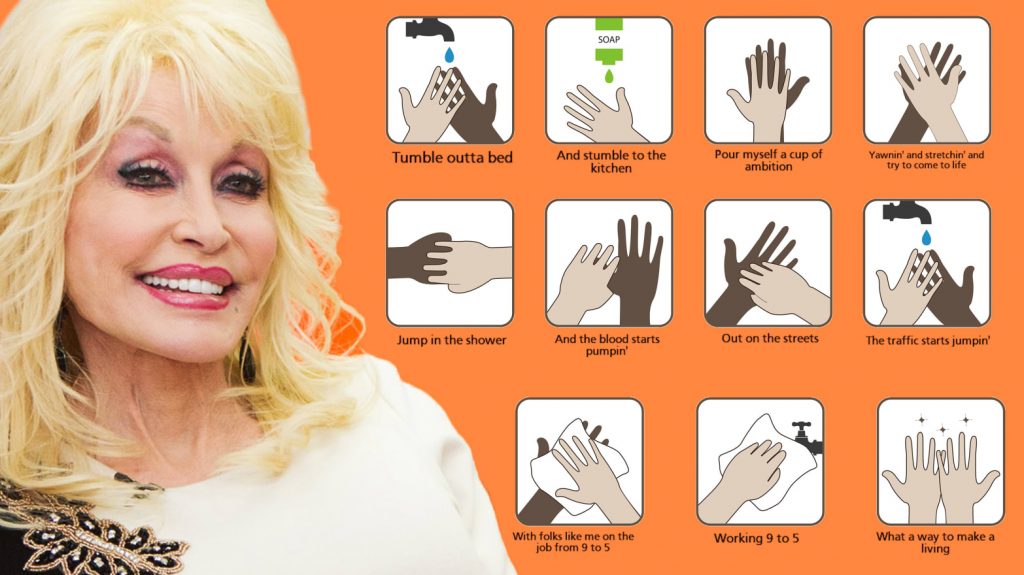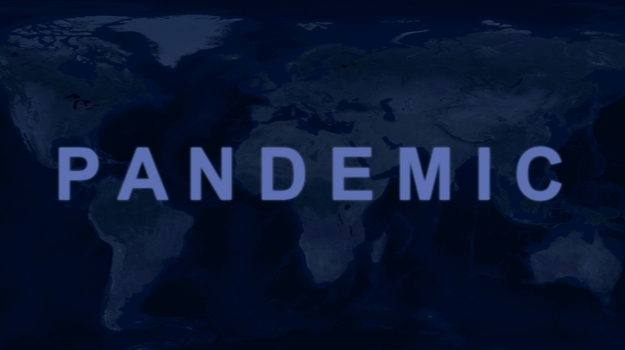A million-dollar donation from America’s country music sweetheart is funding cutting-edge research into antibody treatments that could help severely ill COVID-19 patients.

After the country music legend and American icon suffered a terrible accident in 2013, she befriended Vanderbilt University surgeon Naji Abumrad, who introduced her to the school’s cutting-edge antibody research when the COVID-19 pandemic began.
Now, Dolly has donated a million dollars to the Vanderbilt Vaccine Center—money which is hard at work paying for research into synthetic antibodies that could treat sick COVID-19 patients. And she’s not the only one. The Vanderbilt group is also backed by DARPA, the Pentagon’s premier research agency. So what is Vanderbilt doing to find a coronavirus treatment, and when will we know if it’s effective?
Antibodies lead the way: Antibodies, the proteins your body makes to fight off invading pathogens like the coronavirus, are key to a number of the countermeasures researchers are working on to fight the COVID-19 pandemic. Doctors at Johns Hopkins, the Mayo Clinic, and elsewhere are taking convalescent plasma—antibody-filled blood from healed patients—and transfusing it into those sickened by the virus to study whether or not those transplanted antibodies go to work against the virus in new patients. Researchers around the world are also working on 120 different potential vaccines against COVID-19 in the hopes that the inoculations can train the immune system to develop coronavirus-specific antibodies before being exposed to it.
In the meantime, Dr. Robert Carnahan and his team at the Vanderbilt Vaccine Center at Vanderbilt University Medical Center are working to see if they can identify the most effective antibodies against the virus and clone them so they can be cloned and turned into drugs. It’s one of the many possible coronavirus countermeasures under development that former Food & Drug Administration commissioner Dr. Scott Gottlieb called out as among the most promising approaches to treating COVID-19.
It’s part of an emerging field of immunotherapy that uses monoclonal antibodies—antibodies cloned from humans and prescribed as drugs—to fight diseases. The process involves identifying, cloning, manufacturing, and prescribing the weapons your body makes naturally to fight the disease. Right now there are over a hundred different kinds of antibodies available on the market, many of them designed to help fight cancer by finding and attacking cancer cells but Vanderbilt is hoping to add a COVID-killer to the list.
B cell contestants: When the coronavirus pandemic began, Vanderbilt put out a call for blood from COVID-19 survivors and got samples from some of the earliest known patients from Washington state. “We had another very early donor from the United States and the two first patients that were identified in Canada,” Carnahan told The Daily Beast.
The researchers then went hunting from within those blood samples for B cells that recognized the virus. B cells are some of the frontline troops of the human immune system which bind to and neutralize invaders like the coronavirus. “From that big bucket of B cells, our job is to fish out the ones which are making antibodies specific to the target we care about,” says Carnahan.
“You can think of it like a bait trap,” he explained. The bait in this case is the spike protein from the coronavirus—the bits of protein on the outside of the virus that bind to human cells. Scientists expose coronavirus spike protein bait to their pool of B cells to see which ones go for it.
“Through that interaction we were able to pull them out of the big mix of millions of B cells and pull out the tens of thousands of B cells which recognize the spike protein.” Those cells become the starting pool of antibody candidates that researchers know can at least bind to the virus’s spike protein. From there, the job becomes identifying which of those cells that bind to the spike protein actually inhibit it.
Final contenders: To find the toughest, corona-killing antibodies, Vanderbilt takes its pool of spike-binding B cells and puts them on tiny chips with thousands of chambers for each cell. The chips help separate the cells and let scientists isolate the ones they think are producing antibodies against the virus.
From there, Carnahan’s team then tries to get the genetic blueprint of those antibodies. The scientists use a DNA sequencing tool made by 10x Genomics called Chromium. “It’s called a single-cell encapsulation device,” Carnhan says. “It puts each cell in a little bubble of detergent and then allows you to separate those cells from one another and then individually obtain the [genetic] sequence from each one of those cells.”
With its genetic sequence in hand, scientists can then start cloning the antibodies and dropping them into mammalian cells to see whether or not they go to work on the virus. “Now we have total control over the antibody. We can make it at will and we can start to study its properties.”
Carnahan uses a funnel metaphor to explain the process of winnowing. “We start with a million B cells. We get that down to 10,000 ones that bind to spike proteins and 3,000 that we’re expressing. And then we’re hopefully getting down to 50 or less that looked like they had the best activity” against the virus’s spike protein.
Cloning coronavirus weapons: So when could we see whether the antibodies identified by Vanderbilt are effective against the virus? Vanderbilt’s job is to help identify antibody candidates while pharmaceutical giants like AstraZeneca have teamed up with the university to run clinical trials and see whether the antibodies Vanderbilt has identified actually work when given to humans. “We are in the process literally in the last week of handing off our best antibodies to multiple downstream partners,” he told The Daily Beast. The trials will likely take place over the summer, meaning it’s possible we could have solid data about their effectiveness by the fall.

Pandemic bootcamp: Part of the reason Vanderbilt was able to move so quickly on its coronavirus work was because of its previous work for the Pentagon. DARPA, the Defense Department’s advanced research shop, worked with Vanderbilt years before the coronavirus on the Pandemic Prevention Program or P3.
P3 had the prescient goal of researching ways that scientists could develop medical countermeasures against sudden pandemic diseases. Carnahan described it as “the most intense experience we’d all ever had in science” before COVID-19.
“Once you think you can do something, then they want to make you prove it. And so in 2019 they basically said, okay, here’s your first chance to prove it.”
The challenge DARPA gave to Carnahan and his team was to work together with a handful of other universities to develop an antibody-based treatment for the zika virus, which can cause microcephaly in babies, in 90 days.
The experience of going from nothing to an antibody-based therapy in a short period of time was useful preparation for Carnahan’s team going into the coronavirus pandemic.
“That was super helpful to put ourselves in that pressure cooker. There’s a lot of logistics and other things that we don’t always think of when you’re in the middle of something where an hour matters or a day matters,” said Carnhan.

